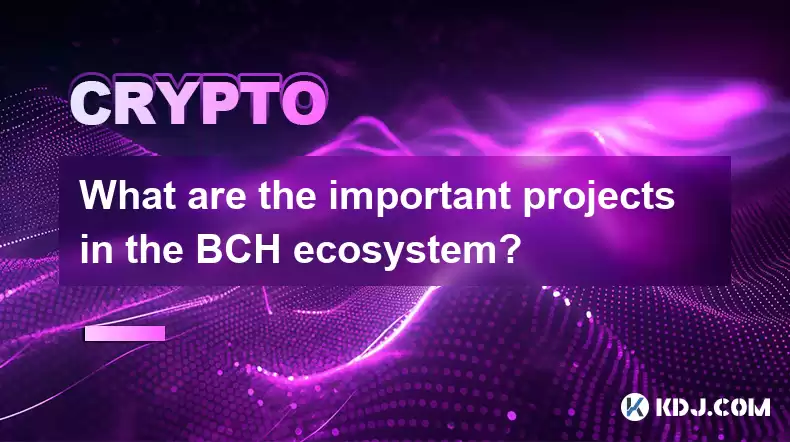-
 Bitcoin
Bitcoin $120300
1.41% -
 Ethereum
Ethereum $4296
2.75% -
 XRP
XRP $3.220
1.46% -
 Tether USDt
Tether USDt $0.9997
-0.04% -
 BNB
BNB $801.6
0.14% -
 Solana
Solana $179.9
0.22% -
 USDC
USDC $0.9998
-0.01% -
 Dogecoin
Dogecoin $0.2302
-0.24% -
 TRON
TRON $0.3405
-0.39% -
 Cardano
Cardano $0.7965
0.53% -
 Hyperliquid
Hyperliquid $44.80
2.57% -
 Chainlink
Chainlink $21.95
2.94% -
 Stellar
Stellar $0.4438
1.68% -
 Sui
Sui $3.767
-1.42% -
 Bitcoin Cash
Bitcoin Cash $584.4
3.24% -
 Hedera
Hedera $0.2554
-0.59% -
 Ethena USDe
Ethena USDe $1.001
-0.02% -
 Avalanche
Avalanche $23.57
0.00% -
 Litecoin
Litecoin $126.6
4.64% -
 Toncoin
Toncoin $3.339
0.94% -
 UNUS SED LEO
UNUS SED LEO $9.001
-0.49% -
 Shiba Inu
Shiba Inu $0.00001320
-0.92% -
 Uniswap
Uniswap $10.84
3.36% -
 Polkadot
Polkadot $3.945
-1.39% -
 Cronos
Cronos $0.1663
4.77% -
 Ethena
Ethena $0.8136
8.48% -
 Dai
Dai $0.0000
0.00% -
 Bitget Token
Bitget Token $4.391
-0.51% -
 Monero
Monero $268.0
0.80% -
 Pepe
Pepe $0.00001169
-1.57%
What are the important projects in the BCH ecosystem?
The Bitcoin Cash ecosystem thrives on projects enhancing scalability, usability, and functionality, including wallets like Electron Cash, payment processors like Cash App, and decentralized exchanges like ForkDelta, all aiming to boost BCH adoption as a peer-to-peer electronic cash system.
Mar 12, 2025 at 03:50 pm

Key Points:
- The Bitcoin Cash (BCH) ecosystem boasts several notable projects focusing on improving scalability, usability, and functionality.
- These projects range from payment processors and wallets to decentralized exchanges and sidechains.
- Many aim to address Bitcoin Cash's limitations and enhance its adoption as a peer-to-peer electronic cash system.
- The ecosystem is constantly evolving, with new projects emerging and existing ones undergoing development.
What are the important projects in the BCH ecosystem? Bitcoin Cash (BCH), a hard fork of Bitcoin, has cultivated a vibrant ecosystem of projects aiming to enhance its utility and adoption as a fast and low-cost payment system. While not as extensive as some larger crypto ecosystems, BCH boasts several noteworthy initiatives. Understanding these projects helps gauge the overall health and potential of the BCH network.
Payment Processors and Wallets:
Several projects focus on simplifying BCH transactions for everyday users. These include:
- Cash App: While not exclusively a BCH project, Cash App's integration of BCH allows users to easily send and receive BCH. Its user-friendly interface contributes significantly to BCH's accessibility.
- Electron Cash: This is a popular lightweight wallet known for its security and ease of use. It prioritizes user privacy and offers features like offline transaction signing.
- Simple Ledger Protocol (SLP): SLP isn't a wallet itself, but a protocol built on top of BCH enabling the creation and trading of tokens. Many wallets support SLP, expanding the functionality of BCH beyond simple currency transfers. This opens doors for tokenized assets and other applications on the BCH blockchain.
These wallets and processors significantly lower the barrier to entry for individuals looking to utilize BCH for everyday transactions.
Decentralized Exchanges (DEXs):
The BCH ecosystem is home to several DEXs aiming to provide users with decentralized trading capabilities. These include:
- ForkDelta: This DEX allows users to trade BCH and SLP tokens without needing to rely on centralized exchanges. Its decentralized nature offers greater control and security for users.
- Other DEXs: While ForkDelta is a prominent example, several smaller, newer DEXs are emerging within the BCH ecosystem, each offering unique features and trading pairs. The ongoing development in this space reflects the growing interest in decentralized finance (DeFi) within the BCH community.
Sidechains and Layer-2 Solutions:
To enhance scalability and transaction throughput, several projects are exploring sidechains and Layer-2 solutions:
- Experimental Sidechains: Several projects are experimenting with sidechains to offload transaction processing from the main BCH chain. This approach aims to improve the speed and efficiency of the network without compromising the security of the main chain. However, widespread adoption of these sidechains remains a work in progress.
- Layer-2 Scaling Solutions: Similar to sidechains, Layer-2 solutions like payment channels are being explored to increase transaction capacity without requiring changes to the core BCH protocol. The development and implementation of these solutions are ongoing.
Other Notable Projects:
Beyond the categories mentioned above, several other noteworthy projects contribute to the BCH ecosystem:
- Development Tools and Libraries: A robust set of development tools and libraries facilitates the creation of new applications and services on the BCH blockchain. This actively supports the growth of the ecosystem.
- Community Initiatives: Numerous community initiatives foster collaboration and development within the BCH space. These initiatives range from educational resources to hackathons, driving innovation and adoption.
Addressing BCH Limitations:
Many BCH projects directly address perceived limitations of the cryptocurrency. These include:
- Scalability: Projects focusing on sidechains and Layer-2 solutions directly tackle BCH's scalability challenges. Increasing transaction throughput is crucial for wider adoption.
- Usability: User-friendly wallets and payment processors aim to simplify the process of using BCH for everyday transactions. Improving usability is key to broader adoption.
- Interoperability: While not a direct focus of many individual projects, the overall goal of increased interoperability with other cryptocurrencies is a key driver for much of the ecosystem development.
Frequently Asked Questions:
Q: Is Bitcoin Cash (BCH) different from Bitcoin (BTC)?
A: Yes, BCH is a hard fork of Bitcoin. It differs primarily in its block size and transaction processing capabilities. BCH aims for faster and cheaper transactions compared to BTC.
Q: Are BCH projects secure?
A: The security of individual BCH projects varies. Reputable projects with strong community support and transparent development processes generally offer higher levels of security. Always conduct thorough research before interacting with any BCH project.
Q: How can I participate in the BCH ecosystem?
A: You can participate by using BCH wallets, trading on BCH DEXs, contributing to open-source projects, or supporting community initiatives. The level of participation depends on your technical skills and interests.
Q: What is the future of BCH projects?
A: The future of BCH projects depends on several factors, including technological advancements, market demand, and regulatory changes. The continued development of scalable solutions and user-friendly applications will be crucial for the long-term success of the ecosystem.
Disclaimer:info@kdj.com
The information provided is not trading advice. kdj.com does not assume any responsibility for any investments made based on the information provided in this article. Cryptocurrencies are highly volatile and it is highly recommended that you invest with caution after thorough research!
If you believe that the content used on this website infringes your copyright, please contact us immediately (info@kdj.com) and we will delete it promptly.
- DYDX Price Stays Afloat: Navigating Neutral Momentum with Technical Indicators
- 2025-08-11 20:50:12
- Superman Takes Flight: A Deep Dive into the Comic Program and Coin Medals
- 2025-08-11 20:30:12
- JasmyCoin's Bullish Momentum: Riding the Daily Gain Wave
- 2025-08-11 21:10:12
- Shiba Inu's Comeback Trail and the Meme Coin Mania: Can $SHIB Deliver a 12,000x Return?
- 2025-08-11 18:30:11
- Proof of Trust, Transparency, and User Safety: Keeping Crypto Real
- 2025-08-11 18:50:12
- Pudgy Penguins, Bitcoin Penguins, and the $22M Meme Coin Mania: A New York Perspective
- 2025-08-11 17:10:11
Related knowledge

How to purchase Aragon (ANT)?
Aug 09,2025 at 11:56pm
Understanding Aragon (ANT) and Its PurposeAragon (ANT) is a decentralized governance token that powers the Aragon Network, a platform built on the Eth...

Where to trade Band Protocol (BAND)?
Aug 10,2025 at 11:36pm
Understanding the Role of Private Keys in Cryptocurrency WalletsIn the world of cryptocurrency, a private key is one of the most critical components o...

What is the most secure way to buy Ocean Protocol (OCEAN)?
Aug 10,2025 at 01:01pm
Understanding Ocean Protocol (OCEAN) and Its EcosystemOcean Protocol (OCEAN) is a decentralized data exchange platform built on blockchain technology,...

Where can I buy UMA (UMA)?
Aug 07,2025 at 06:42pm
Understanding UMA and Its Role in Decentralized FinanceUMA (Universal Market Access) is an Ethereum-based decentralized finance (DeFi) protocol design...

How to buy Storj (STORJ) tokens?
Aug 09,2025 at 07:28am
Understanding Storj (STORJ) and Its Role in Decentralized StorageStorj is a decentralized cloud storage platform that leverages blockchain technology ...

Where to find the best price for Audius (AUDIO)?
Aug 11,2025 at 04:01pm
Understanding the Basics of Ethereum StakingEthereum staking refers to the process of locking up ETH tokens to support the security and operations of ...

How to purchase Aragon (ANT)?
Aug 09,2025 at 11:56pm
Understanding Aragon (ANT) and Its PurposeAragon (ANT) is a decentralized governance token that powers the Aragon Network, a platform built on the Eth...

Where to trade Band Protocol (BAND)?
Aug 10,2025 at 11:36pm
Understanding the Role of Private Keys in Cryptocurrency WalletsIn the world of cryptocurrency, a private key is one of the most critical components o...

What is the most secure way to buy Ocean Protocol (OCEAN)?
Aug 10,2025 at 01:01pm
Understanding Ocean Protocol (OCEAN) and Its EcosystemOcean Protocol (OCEAN) is a decentralized data exchange platform built on blockchain technology,...

Where can I buy UMA (UMA)?
Aug 07,2025 at 06:42pm
Understanding UMA and Its Role in Decentralized FinanceUMA (Universal Market Access) is an Ethereum-based decentralized finance (DeFi) protocol design...

How to buy Storj (STORJ) tokens?
Aug 09,2025 at 07:28am
Understanding Storj (STORJ) and Its Role in Decentralized StorageStorj is a decentralized cloud storage platform that leverages blockchain technology ...

Where to find the best price for Audius (AUDIO)?
Aug 11,2025 at 04:01pm
Understanding the Basics of Ethereum StakingEthereum staking refers to the process of locking up ETH tokens to support the security and operations of ...
See all articles

























































































